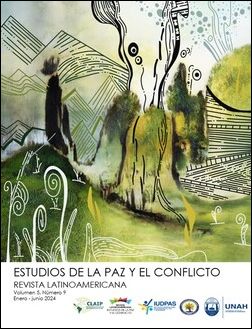The patriarchal discourse and Bolsonaro government policy: an analysis of the policy to promote the acquisition of firearms and its impact on femicide rates
DOI:
https://doi.org/10.5377/rlpc.v5i9.16613Keywords:
Bolsonaro government, access to firearms, women, femicideAbstract
The research aims to analyze the impact of the Bolsonaro Government's actions on data about femicide resulting from the gradual facilitation by the use of weapons. The Brazilian Chief Executive anchored his electoral proposals under the bias of self-protection of the individual, under the parameter that, if he is properly armed, especially with a firearm, he will have more chances to protect his life and that of his family members. However, in view of the Brazilian patriarchal culture, and the numerous rates of femicide, this may represent losses that violate the lives of many women. Thus, there is no prohibition on owning a weapon, however, there are numerous restrictions and assumptions for this, one of the prisms of the Bolsonaro government being the relaxation of these regulations to facilitate the legal possession of a firearm. It can be seen that there are underreporting about the true number of femicide by firearm, because, in fact, many of these cases are classified, mainly by the media, as homicide. Therefore, it became evident that facilitating the population's access to firearms can generate more aggressive responses in conflict resolution, and this ends up boosting the rates of femicide. However, after analyzing the data, it becomes clear that the instruments most used to commit the crime of feminicide are bladed weapons, mainly because they occur mostly between intimate partners. However, outside this environment, the number of deaths of women resulting from firearms is increasing, and this instrument is the main one used to take women's lives.
Downloads
545
HTML (Português (Brasil)) 55
XML (Português (Brasil)) 23
EPUB (Português (Brasil)) 67
Downloads
Published
How to Cite
Issue
Section
License
Copyright (c) 2023 Latin American Journal of Peace and Conflict Studies

This work is licensed under a Creative Commons Attribution 4.0 International License.
The journal's contents are published under a Creative Commons Attribution 4.0 license (CC BY 4.0). This license allows third parties to share (copy and redistribute the material in any medium or format) and adapt (remix, transform and create from the material for any purpose, including commercial), as long as the authorship and first publication in this journal (Revista Latinoamericana Estudios de la Paz y el Conflicto, Universidad Nacional Autónoma de Honduras - Consejo Latinoamericano de Investigación para la Paz, DOI of the work) is acknowledged, a link to the license is provided and it is indicated if changes have been made to the original. The terms of the license are available online at http://creativecommons.org.




